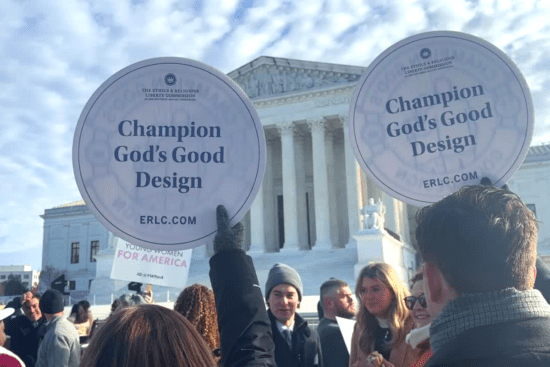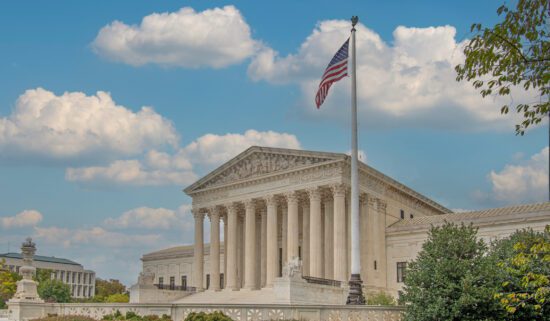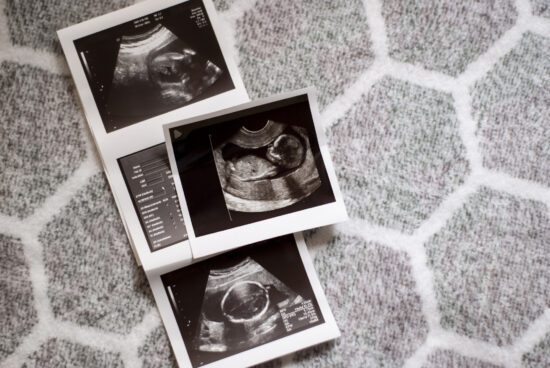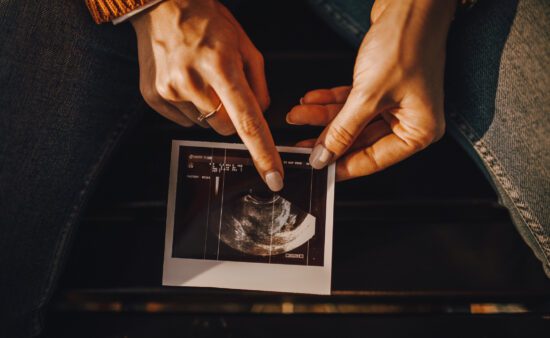Note: This case is quickly evolving, and this article will be updated as new developments emerge.
On April 21, the Supreme Court, in a 7-2 decision, paused a lower court ruling from the U.S. Fifth Circuit Court of Appeals that had restricted the availability of the chemical abortion drug, mifepristone, while litigation around its approval is ongoing. Justices Alito and Thomas dissented from the Court’s action. This means that mifepristone remains available without vital safety precautions in place while the case continues. The case now returns to the Fifth Circuit for oral arguments on the merits of the case.
Previously, a three-judge panel at the U.S. Fifth Circuit Court of Appeals ruled on April 12 that mifepristone, part of the two-drug regimen given for chemical abortions, would remain available while litigation regarding its initial approval by the U.S. Food and Drug Administration continues, but also ordered the FDA to reinstate safety precautions such as:
- limiting the use of the drug to the first 7 weeks of pregnancy,
- cease sending abortion drugs through the mail,
- and require in-person medical visits prior to the drugs being prescribed.
That ruling followed an April 7 ruling from a federal judge in Texas which ordered that the FDA’s 2000 approval of the abortion pill, mifepristone, should be halted nationwide. Within an hour, another federal judge in Washington ruled in a separate case that the FDA must continue providing the drug in several states.
Chemical abortions account for a majority of all abortions in the U.S., particularly in states where abortion has been restricted or banned following the Dobbs decision.
What is this case about?
In November 2022, Alliance Defending Freedom filed suit against the FDA on behalf of four pro-life medical groups. The suit claims that the FDA “failed America’s women and girls when it chose politics over science and approved chemical abortion drugs for use in the United States. And it has continued to fail them by repeatedly removing even the most basic precautionary requirements associated with their use.”
These pro-life groups argue that the FDA was wrong to grant the drug mifepristone fast-tracked approval back in 2000. The complaint continues:
The only way the FDA could have approved chemical abortion drugs was to use its accelerated drug approval authority, necessitating the FDA to call pregnancy an “illness” and argue that these dangerous drugs provide a “meaningful therapeutic benefit” over existing treatments.
But pregnancy is not an illness, nor do chemical abortion drugs provide a therapeutic benefit over surgical abortion. In asserting these transparently false conclusions, the FDA exceeded its regulatory authority to approve the drugs.
Currently, 1 in 5 women who take the drug will experience complications that require further medical attention. The case argues that the disposal of original safety precautions that accompanied the drug’s initial approval have led to increased danger to the women and girls who take mifepristone.
In 2016, the FDA:
- expanded the availability of chemical abortion drugs from 7 weeks of pregnancy up to 10 weeks of pregnancy,
- changed the dosing regimen,
- reduced the number of in-person doctor visits from three to one,
- expanded who could prescribe and administer chemical abortion drugs beyond medical doctors,
- and eliminated the requirement for prescribers to report non-fatal complications from chemical abortion drugs.
Then, in 2021, the FDA removed the requirement of in-person dispensing, allowing for abortion drugs to be accessed through the mail and telemedicine without a woman ever seeing a doctor in-person.
Why now?
Though it is unusual that this case is only now being argued over a drug approved 23 years ago, it comes after more than two decades of continued work by the petitioners against the approval of mifepristone.
- In 2002, the petitioners submitted a citizen petition to challenge the FDA’s approval.
- It was not until 2016 that the FDA denied the petition.
- In 2019, the petitioners filed a new citizen petition to challenge the FDA’s 2016 changes.
- In 2021, on the same day the FDA changed the in-person dispensing requirement, it denied the citizen petition.
- Following the denial, the petitioners were finally able to file suit against the FDA in November 2022.
What happens next?
This case now heads back to the U.S. Fifth Circuit Court of Appeal where oral arguments on the merits of the case will be heard on May 17. Some abortion advocates have already begun to stockpile the drug in anticipation of its removal from the market. Others have suggested that the medication abortion protocol could be changed to just include misoprostol, the other drug in the current two-step protocol, even though this practice is known to cause increased cramping, bleeding, and potential complications for women.
Southern Baptists care about the sanctity of life and dignity of all people, including the preborn. We also care about the health, safety, and welfare of women who have experienced harmful and serious medical complications from these drugs at the hands of the predatory abortion industry. Though the Supreme Court’s ruling is a disappointing setback, the fight against medication abortion—and the harms that it brings to women and the preborn—is far from over. We will continue to urge the courts and the FDA to take action that protects women and the preborn.










